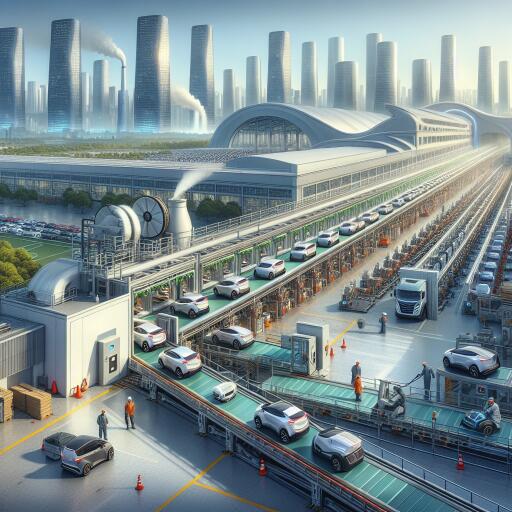
China Advocates for Electric Vehicle Production Amid Global Demand
In recent developments, China has been vocal about its intensified manufacturing efforts, especially in the field of electric vehicles (EVs), framing it as a necessary stride towards meeting global green targets. During a notable gathering of finance ministers and central bank governors from the G-20 nations in Rio de Janeiro, a prominent Chinese official highlighted the nation’s pivot towards fostering “green goods” to aid global carbon reduction ambitions set for 2030.
The shift comes against the backdrop of increasing global demand for new energy vehicles, anticipated to reach between 45 million to 75 million units within the next decade. This projection, originally detailed by the International Energy Agency, underscores a significant gap between the world’s aspirations for cleaner transportation solutions and the current manufacturing capacities.
This transition towards electric vehicles is seen not only as an effort to combat climate challenges but also as a continuation of China’s historical role in providing cost-effective manufactured goods on a global scale. However, this manufacturing strategy has stirred international debate, with some developed economies raising concerns over the potential impacts on their local industries and market balance.
Amidst these discussions, global economic powers, including the United States and the European Union, have mooted the imposition of tariffs on Chinese-produced goods, including EVs, citing concerns over market overcapacity and unfair competition. This stance is echoed in some emerging economies, which have already implemented protective tariffs on a range of Chinese products.
In response to these challenges, China emphasizes the importance of open dialogue and adherence to market economy principles. The nation’s experience suggests that the competitive edge of its industries, particularly in renewable energy, stems not from government subsidies but from years of corporate commitment to research, development, and innovation. The burgeoning electric vehicle sector embodies China’s broader strategy of pursuing growth through technological advancements, contrasting with nations that have remained anchored in conventional automotive industries.
China’s approach raises fundamental questions about market dynamics and the role of strategic investment in nurturing new industries. The country advocates for a comprehensive understanding of how market economies evolve, highlighting the periodic nature of investment surges and capacity expansions across various sectors, from information technology to biopharmaceuticals.
As global leaders navigate the complexities of economic strategy and environmental sustainability, the discourse surrounding electric vehicles takes center stage. China’s emphasis on candid communication and innovation presents a pivotal chapter in the ongoing dialogue on balancing economic growth with ecological stewardship.
The conversation extends beyond the realm of trade wars and tariffs, delving into the substance of how nations can collaboratively advance towards a greener, more sustainable future. The journey towards electric vehicle adoption and the consequent reshaping of global manufacturing landscapes underscores the multifaceted challenges and opportunities at the intersection of global trade, innovation, and environmental responsibility.





Leave a Reply